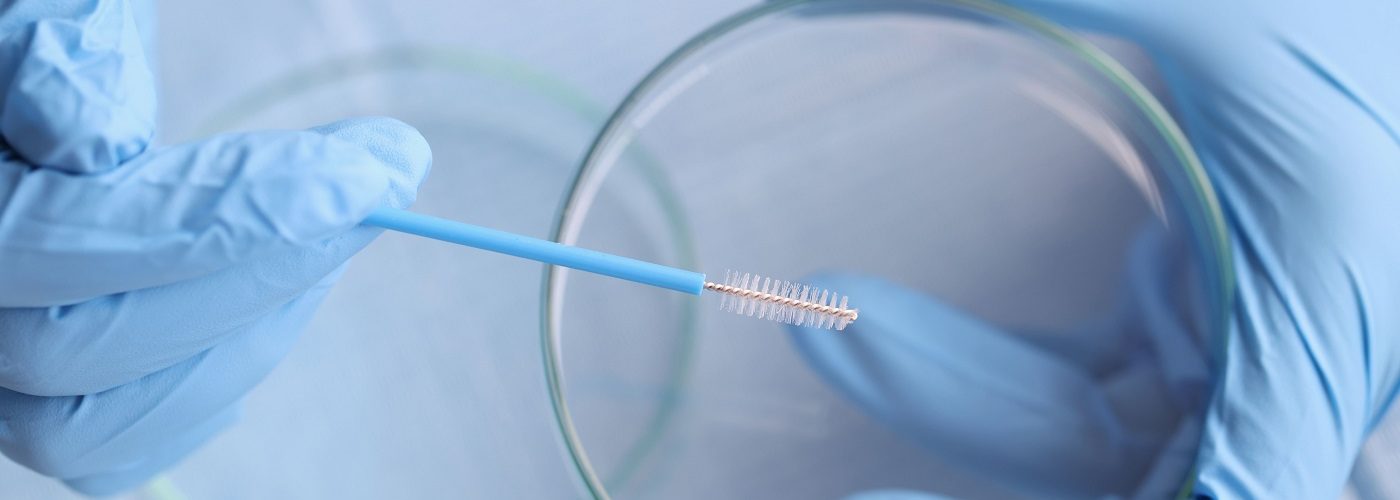
According to WHO figures, cervical cancer is the fourth most common type of cancer worldwide. Its incidence exceeds 600,000 cases per year, with more than 50% of deaths. However, this type of cancer has a good prognosis if it is diagnosed in time and appropriate treatment is started. Prevention is better than cure and that is why today we will discuss the Pap test or smear test. This simple test can detect this and other diseases. What does it consist of? What is its aim? We answer these and other questions.
What is a smear test?
A smear test is a painless technique that takes only a few minutes. The gynaecologist extracts a sample of cells from the inside and the outside of the cervix, which are sent to the laboratory for analysis and diagnosis. He/She performs the test by inserting a brush and a spatula and gently scraping the cervix.
The purpose of a smear test is to diagnose cervical cancer or precursor lesions. It can also detect other diseases such as human papillomavirus (HPV) or other conditions caused by fungi or bacteria.
Experts agree that women between the ages of 25 and 29 should have a smear test every three years. For those between the ages of 30 and 65, testing every five years would be sufficient. In some cases, the frequency should be increased in order to keep risk factors under control:
- History of certain gynaecological diseases.
- Presence of genital warts caused by HPV (Human Papilloma Virus).
- If previous smear tests have been positive or show inconclusive results.
- Patients with a very active sex life.
- If the patient is immunosuppressed.
Cervical cancer and HPV
The WHO estimates that more than 95% of cervical cancer cases are due to Human Papilloma Virus (HPV), a common viral infection of the reproductive system. It is true that most HPV infections go away on their own, but it is also possible for them to become chronic and develop into invasive cervical cancer. Hence the importance of prevention and vaccination.
As we have already mentioned, the smear test is our major ally when it comes to preventing and detecting diseases or abnormalities in a woman’s uterus. Experts in Spain state that the smear test has reduced mortality and the incidence of cervical cancer by around 70-80%.
In order for the results of the smear test to be conclusive, the patient should not attend the appointment while menstruating. She should also abstain from sexual intercourse for 48 hours before the appointment. It is also necessary to avoid treatments with ovules or spermicides in the days prior to the test as well as internal douching.
Once the smear test has been performed, if the cells show no abnormalities, the diagnosis will be negative. This means there is no presence of disease or infection.
Smear test: how to proceed if the result is positive
If, on the other hand, the result is positive, it means that the cervical cells studied are abnormal. Therefore, a pathology is present, as these cells can be a warning sign of cancerous and pre-cancerous diseases.
In this case, the next step is an examination of the cervix, vagina and vulva. The gynaecologist will be able to detect what the disease is and provide the patient with the most appropriate treatment.
At IVI clinics, as leaders in assisted reproduction for more than 30 years, we offer you the best professional team to answer your questions and help you with anything you may need.





Comments are closed here.